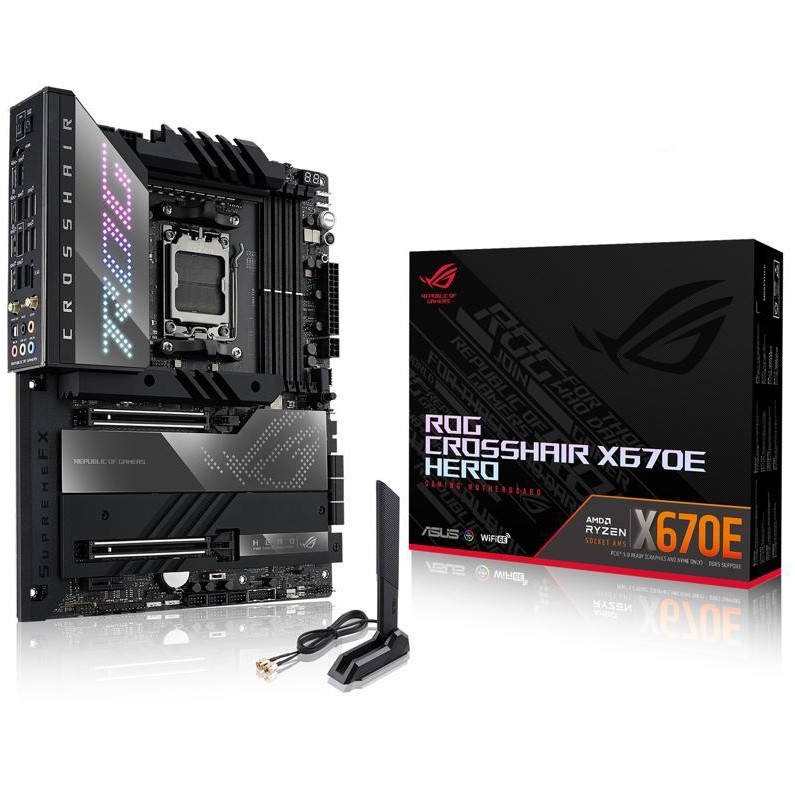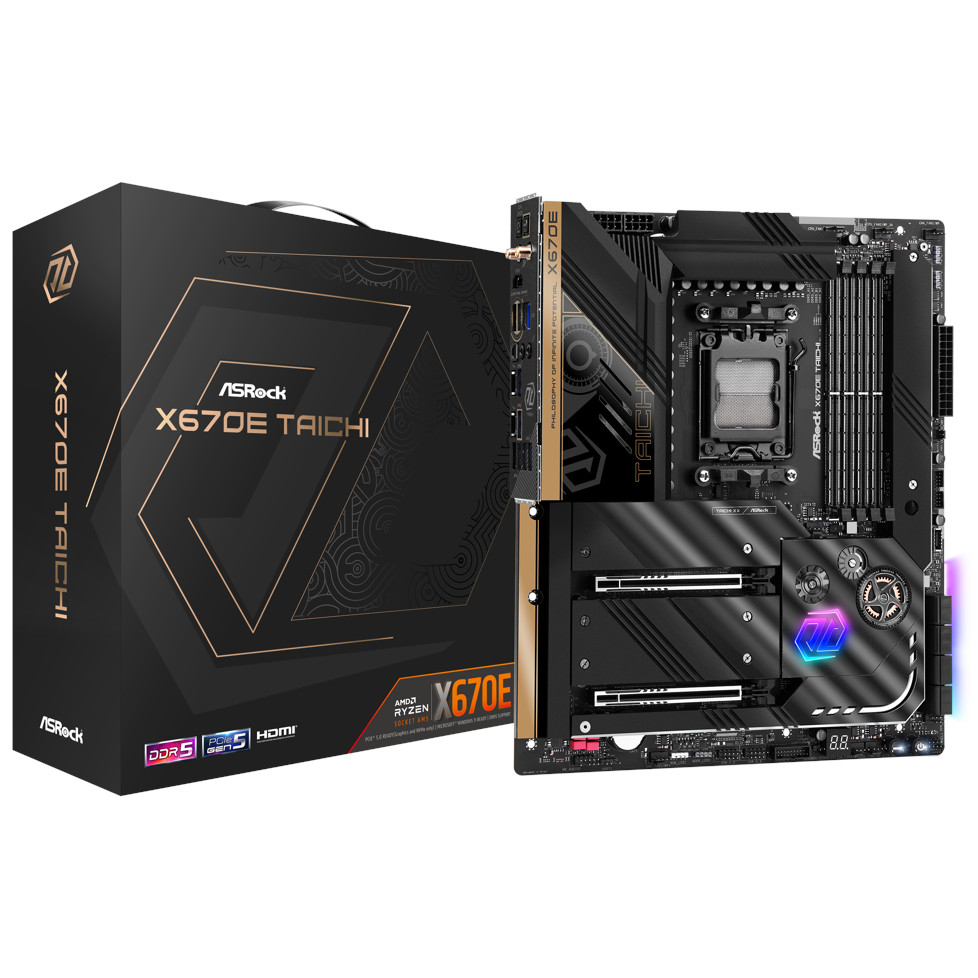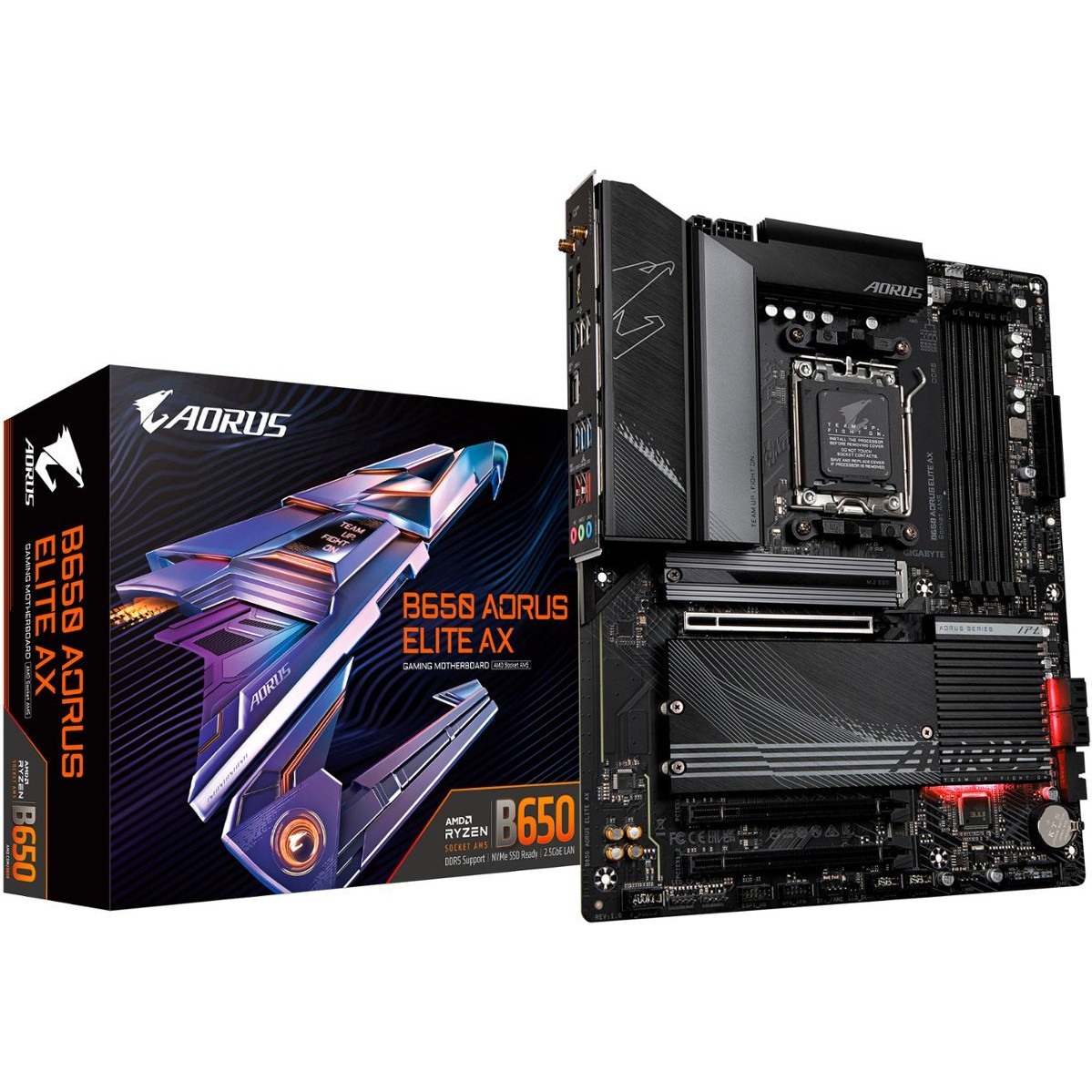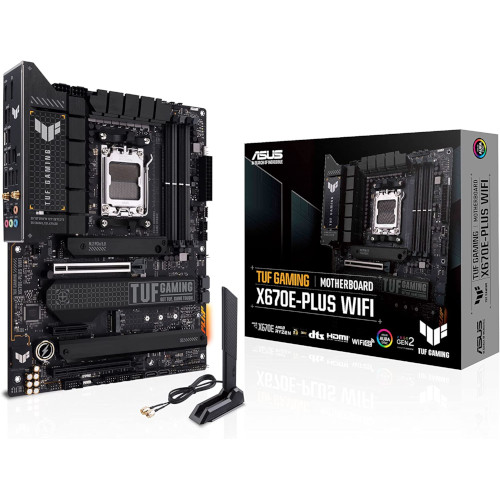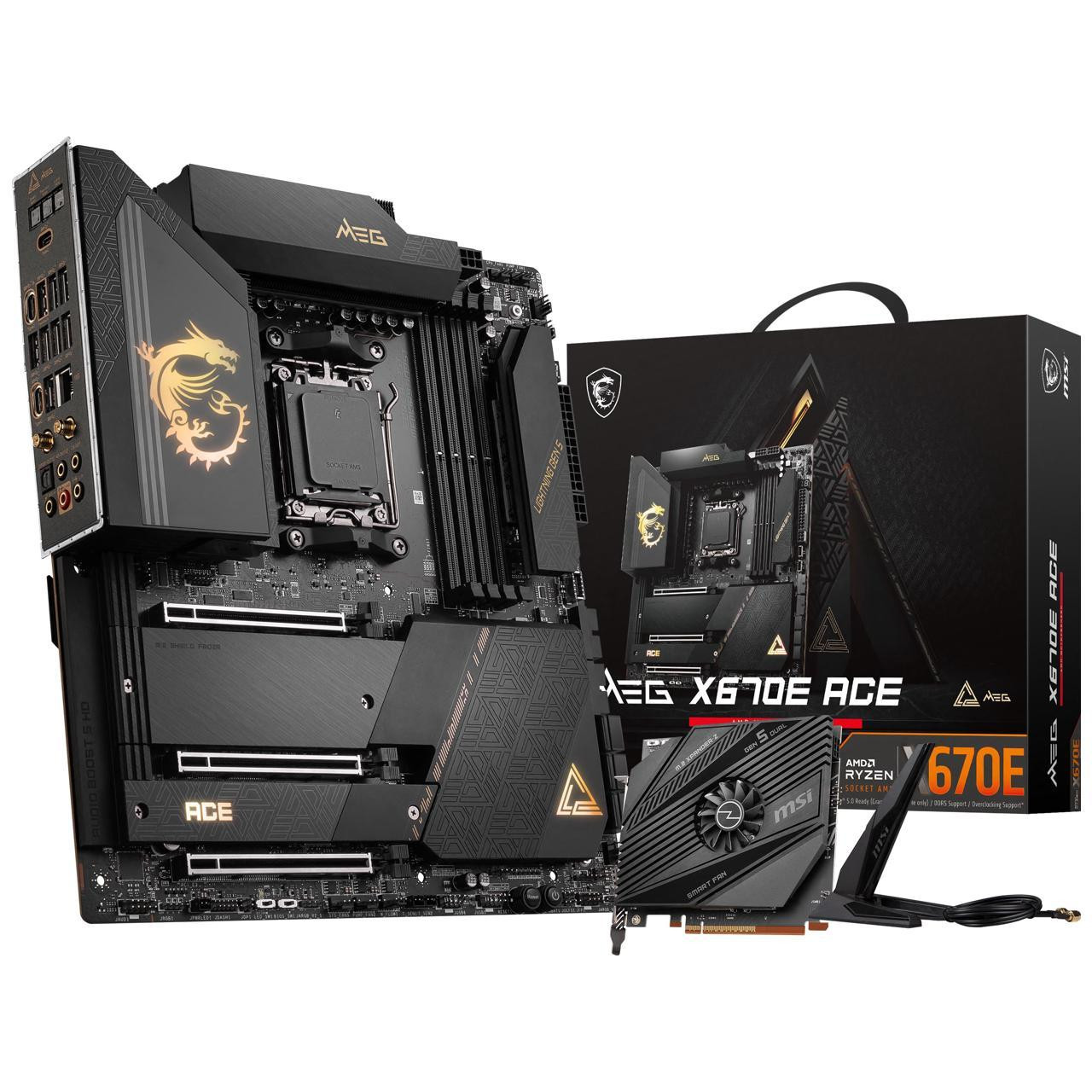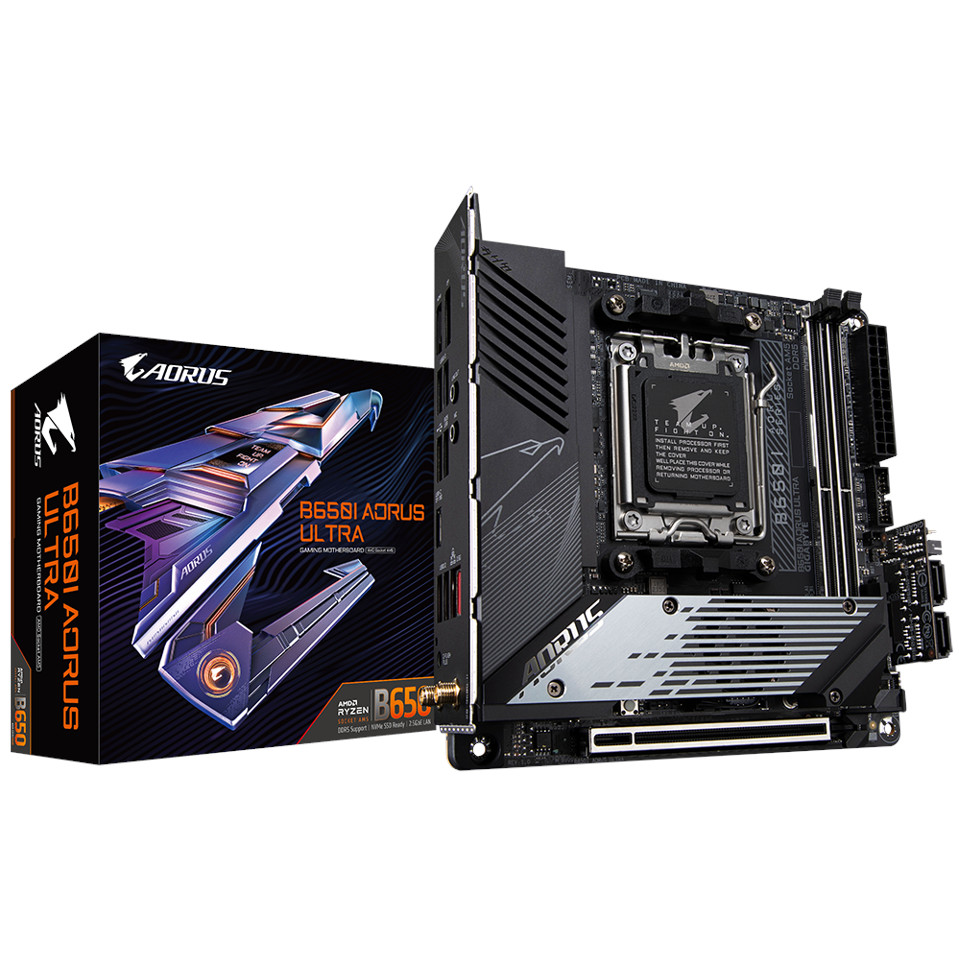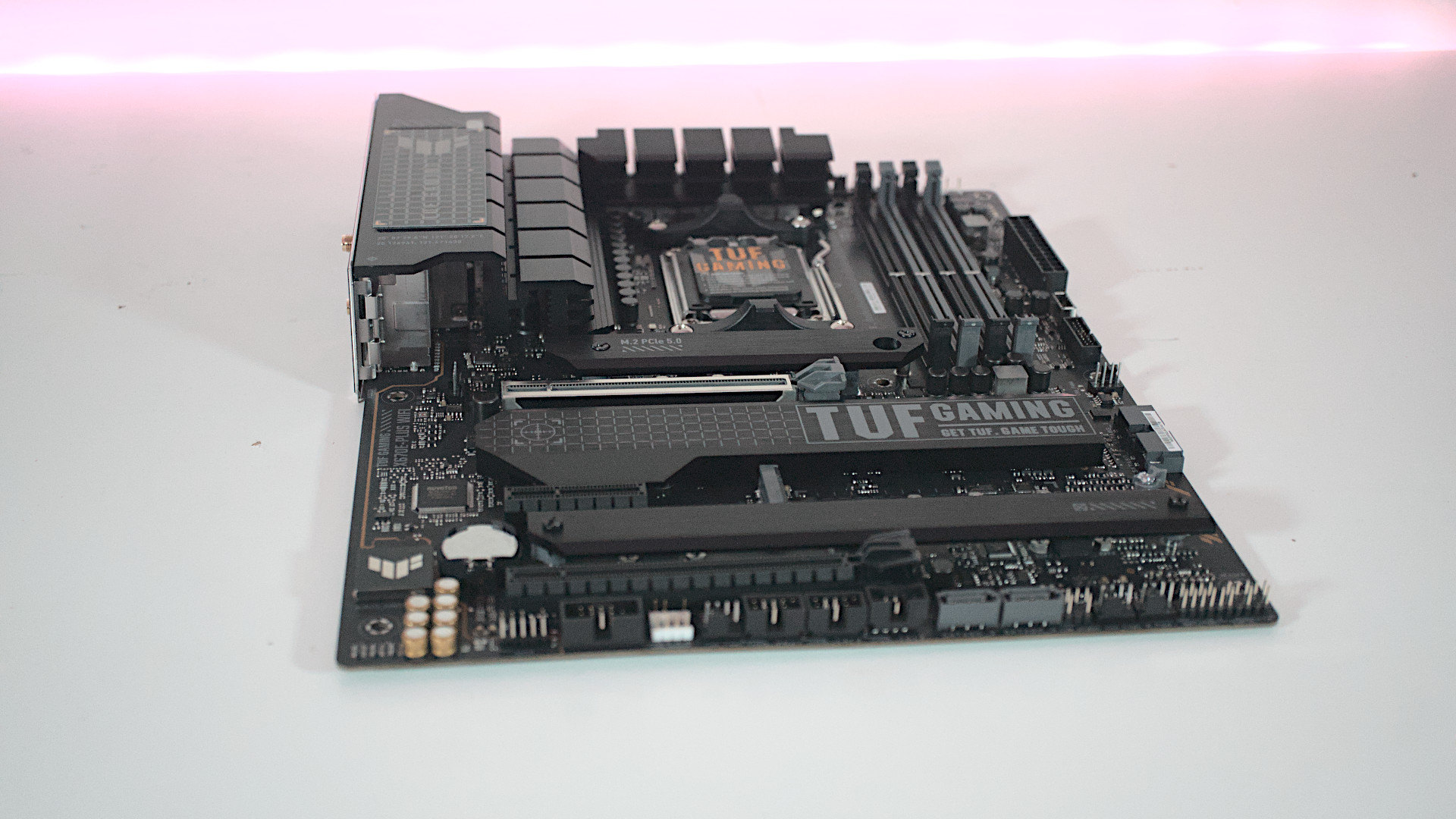AMD’s latest Zen 5 desktop processors from the Ryzen 9000 series were unveiled in June 2024. Despite a short delay due to a misbranding issue, they’re still expected to launch in mid-August. That includes the AMD Ryzen 7 9700X with 8 cores, 16 threads, a 5.5GHz boost clock, and a 65W TDP.
Whether you’re eagerly anticipating the launch or you’re planning a future upgrade path, landing the right motherboard for the Ryzen 7 9700X is key to your PC build’s success. Next-gen 800-series motherboards aren’t expected to launch until later this year, but the X670 and B650 boards and their variants using the AM5 socket remain stellar options for the new Ryzen hardware.
I’ve collected here a mix of top motherboards for the Ryzen 7 9700X we’ve reviewed and motherboards that AMD used to test its new processors. I’ve been sure to include hardware to suit different users and budgets.
ASUS ROG Crosshair X670E Hero
Best overall
With 18+2+2 power stages, dynamic overclocking support, and huge heatsinks for the VRM and chipsets, the ROG Crosshair X670E Hero is an excellent option for enthusiasts and high-performance builds. It has room for four DDR5 DIMMs and five M.2 slots, PCIe 5.0 support, and Wi-Fi 6E. It even has 2.5GbE LAN and dual USB4 as standout ports. You can usually find it for around $630.
Runner-up
ASRock’s X670E Taichi is another one of the boards used by AMD to test its Ryzen processors. It has a 24+2+1 power design with active and passive cooling solution, making it great for overclocking. It has two PCIe 5.0 x16 slots, four DDR5 DIMM slots, and four M.2 slots with a mix of PCIe 4.0 and 5.0. Ports include two USB4 and 2.5GbE LAN, with Wi-Fi 6E for wireless. It’s a more affordable alternative to our top pick at about $410.
GIGABYTE B650 Aorus Elite AX
Budget pick
Gigabyte’s B650 Aorus Elite AX is a cheaper option with a 14+2+1 power design and plenty of passive cooling that can handle some overclocking. It has a PCIe 5.0 x16 slot, two PCIe 3.0 x1 slots, four DDR5 DIMM slots, and plenty of M.2 with a mix of PCIe 5.0 and 4.0. It’s not as ideal for enthusiasts as our top two picks, but at about $200, it’s an excellent option for budget shoppers.
ASUS TUF Gaming X670E-Plus WiFi
Best mid-range
We reviewed this board favorably, thanks to its 14+2+2 power stages, decent overclocking support, and generous port selection. It has PCIe 4.0 and 5.0 x16 slots, four M.2 slots, 2.5GbE LAN, and USB-C 3.2, though it lacks USB4. Passive cooling is enough to keep the board cool, and the extra Wi-Fi 6E support is appreciated. You can usually find it for around $280.
Premium pick
AMD used this monster MSI board for Ryzen 9000 testing, and it remains a top option for enthusiasts with deep pockets. It has a 22+2+1 power design with massive heatsinks, four DDR5 DIMM RAM slots, PCIe 5.0 support for x16, x8, and x4 slots, and four M.2 slots. You get 10GbE LAN, USB-C 3.2 and 3.2 Gen 2×2, and Wi-Fi 6E. Expect to pay about $725 for this board.
GIGABYTE B650I Aorus Ultra
Compact pick
Have a smaller build that needs a new board? Gigabyte’s B650I Aorus Ultra is a mini-ITX board with an 8+2+1 power design, decent heatsink size, two DDR5 DIMM slots, three M.2 slots, and a PCIe 4.0 x16 slot for your GPU. Ports include 2.5GbE LAN and USB-C 3.2 (Gen 2), with a header for USB-C 3.2 (Gen 2×2) support. You can usually pick it up for about $250.
Choosing the best motherboard for your new Ryzen 7 9700X CPU
Why you can trust Windows Central
Our expert reviewers spend hours testing and comparing products and services so you can choose the best for you. Find out more about how we test.
The two top motherboard picks I recommend for the Ryzen 7 9700X are boards that AMD used to test its new processor. These X670E boards from ASUS and ASRock proved themselves with Ryzen 7000 desktop chips, and thanks to BIOS flash (more on that below) and the compatible AM5 socket, they’ll easily transition to Ryzen 9000.
The ASUS ROG Crosshair X670E Hero, at about $630, is reserved for enthusiasts and power users who plan on steep overclocking and heavy performance. The MSI MEG X670E Ace might even be better for those purposes, though at about $725, it’s an even tougher sell for many average users. That puts the high-performance ASRock X670E Taichi in a great spot, with its price around $410.
Don’t want to spend nearly as much? I use the ASUS TUF Gaming brand for plenty of hardware, thanks to its generally positive reliability and competitive pricing. In our ASUS TUF Gaming X670E-Plus WiFi review, former Windows Central Senior Editor Rich Edmonds remarked, “For the average Joe, this is one excellent mid-range AM5 motherboard from ASUS.” You can usually find it for about $280.
Does my motherboard need a BIOS update for Ryzen 9000?
Upgrading your PC or building a new system with processors fresh out of the foundry can come with some extra steps. The biggest hurdle is often updating the motherboard’s BIOS to support the new processors.
While board manufacturers are usually keen on shipping hardware with the latest BIOS updates, you never know how long the board you buy has been sitting around in a warehouse with an older revision. If the motherboard you buy has been collecting dust for the last few months, you can almost guarantee that it won’t have the right BIOS for Ryzen 9000 chips.
While just a few years ago, it was common to require an older CPU installed in the board to update the BIOS, the prevalence of BIOS flashback — which allows you to update without having a CPU in the socket — has made the process much easier. All the motherboards I’ve recommended here for the Ryzen 7 9700X have some BIOS flashback feature.
Instead of requiring a CPU in the socket, BIOS flashing only requires a separate USB drive with the BIOS. You download the BIOS from the manufacturer support page, plug the drive into the motherboard, hit the flash button on the board, and let it update. It will receive the right BIOS for Ryzen 9000 chips, and you can go ahead and install the CPU without issue.
Is AMD’s Ryzen 7 9700X good for gaming?
Considering even the Ryzen 7 5800X from a couple of generations past remains an excellent option for gaming (and beyond), the Ryzen 7 9700X should prove to be an extremely popular chip to pair with a quality graphics card from AMD or NVIDIA.
Although the Ryzen 7 9700X only has 8 cores and 16 threads, we expect it to challenge the 14th-generation Intel Core i7-14700K and its 20 cores in terms of raw power for gaming and other workloads.
Considering the Core i7 runs at a 125W TDP, the Ryzen 7 9700X getting anywhere close to its 65W TDP should be a massive achievement for AMD.


